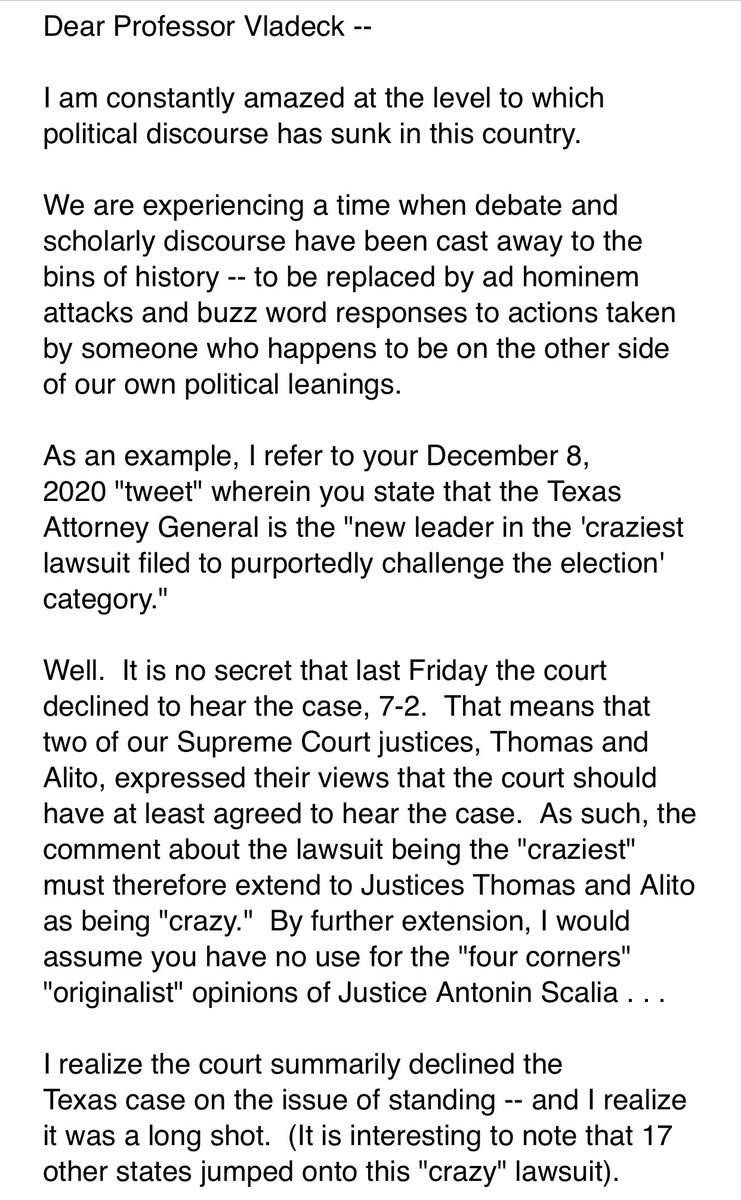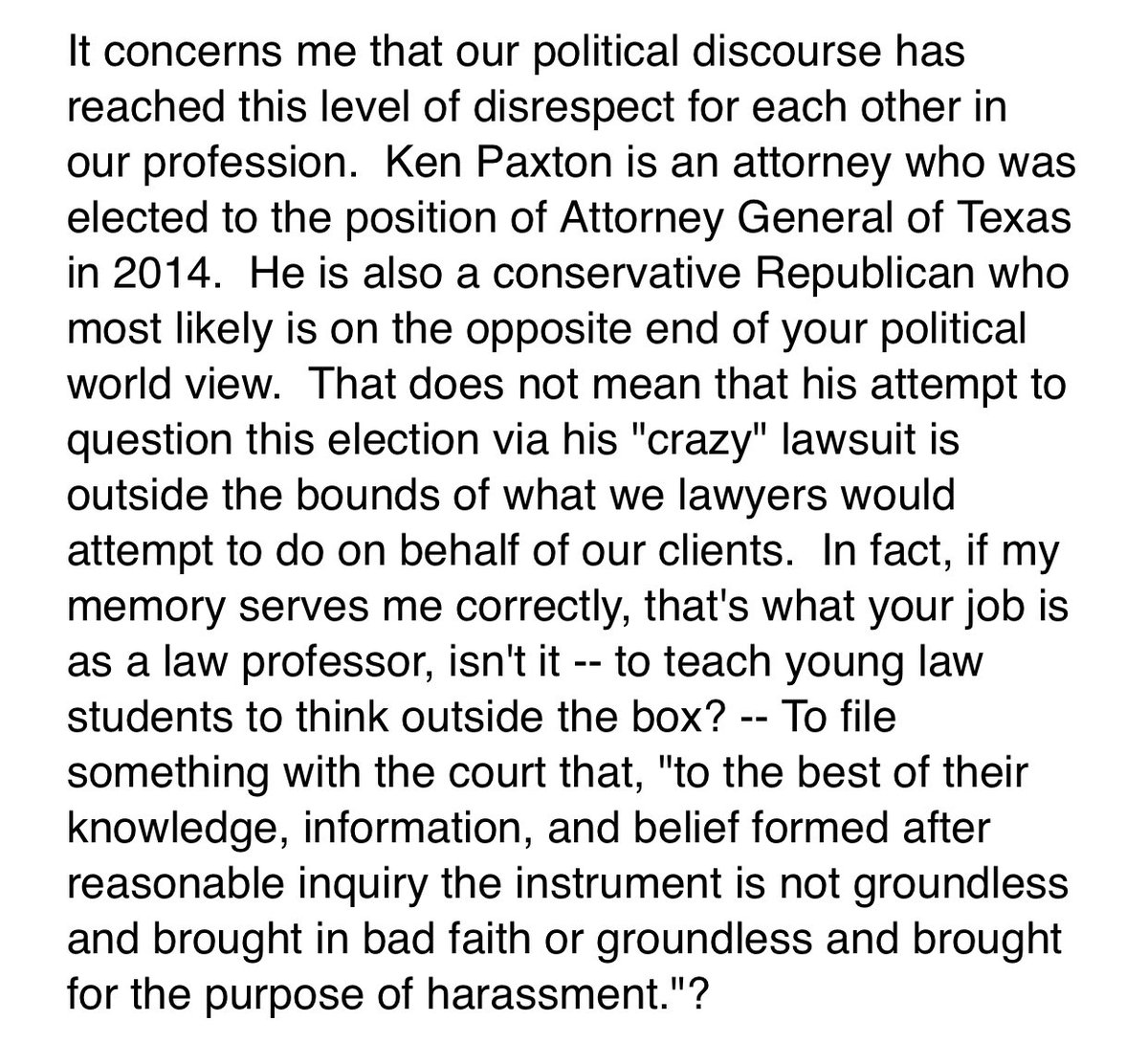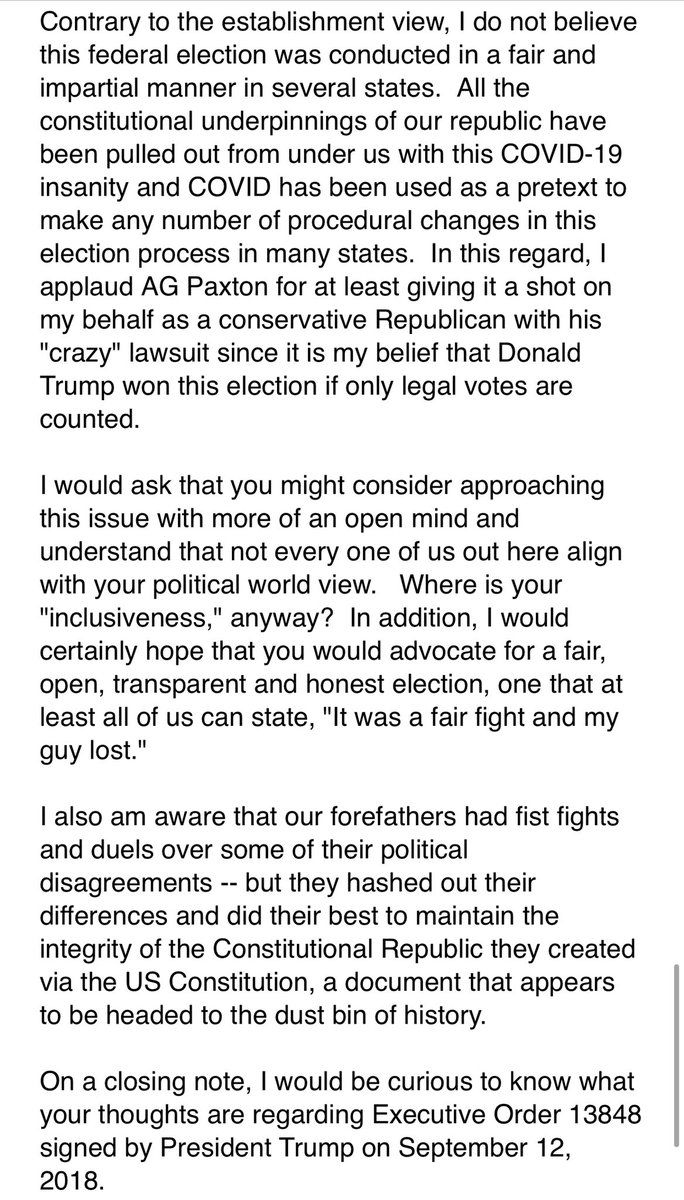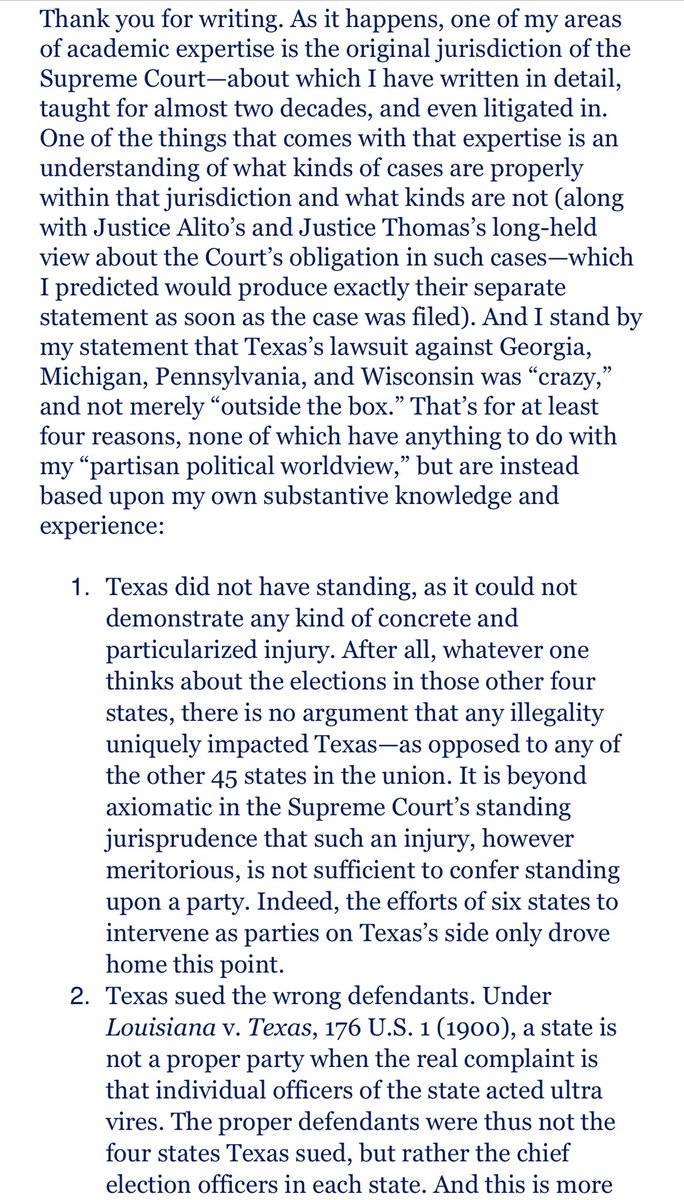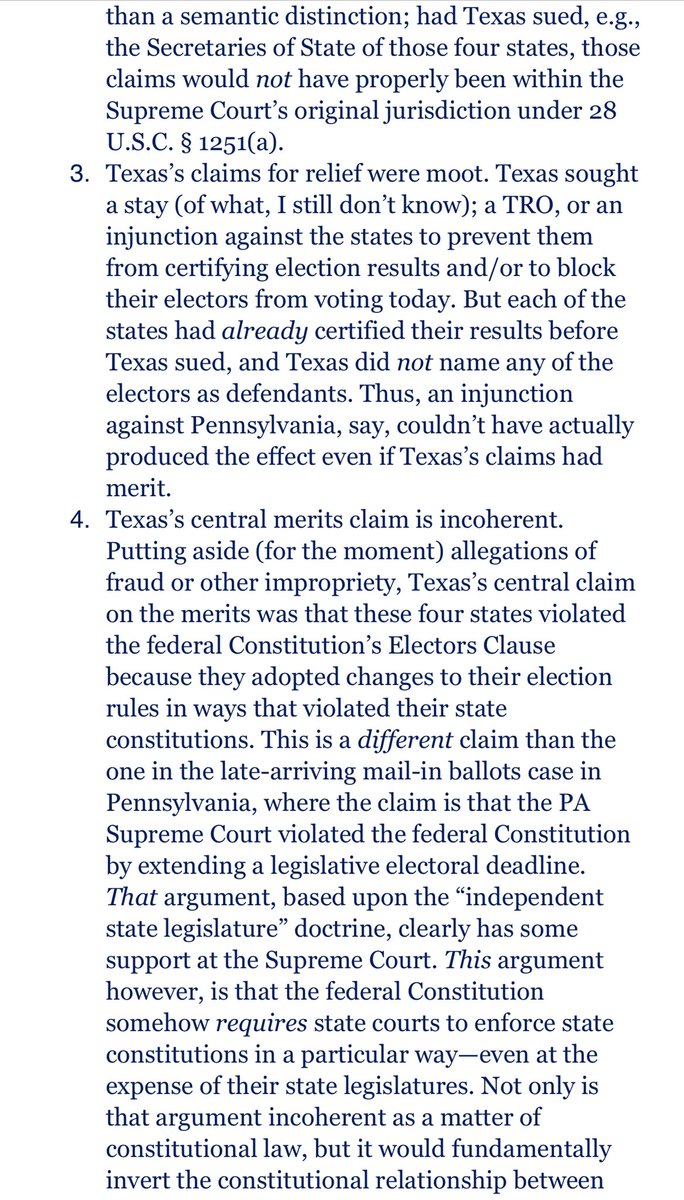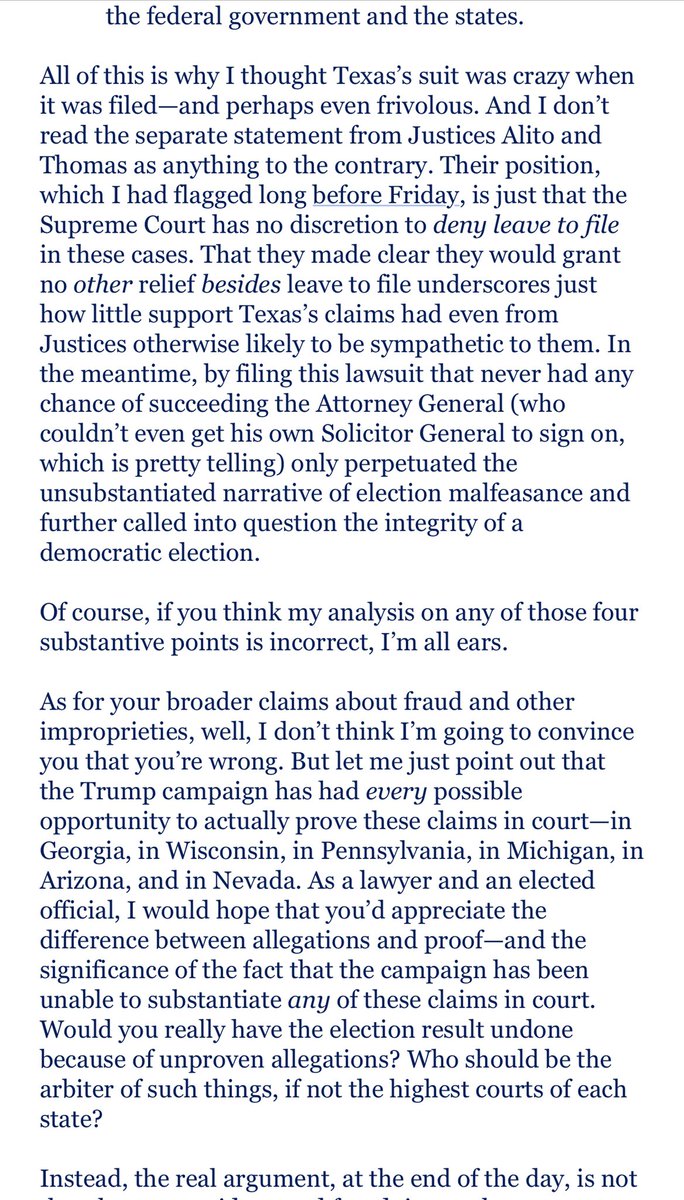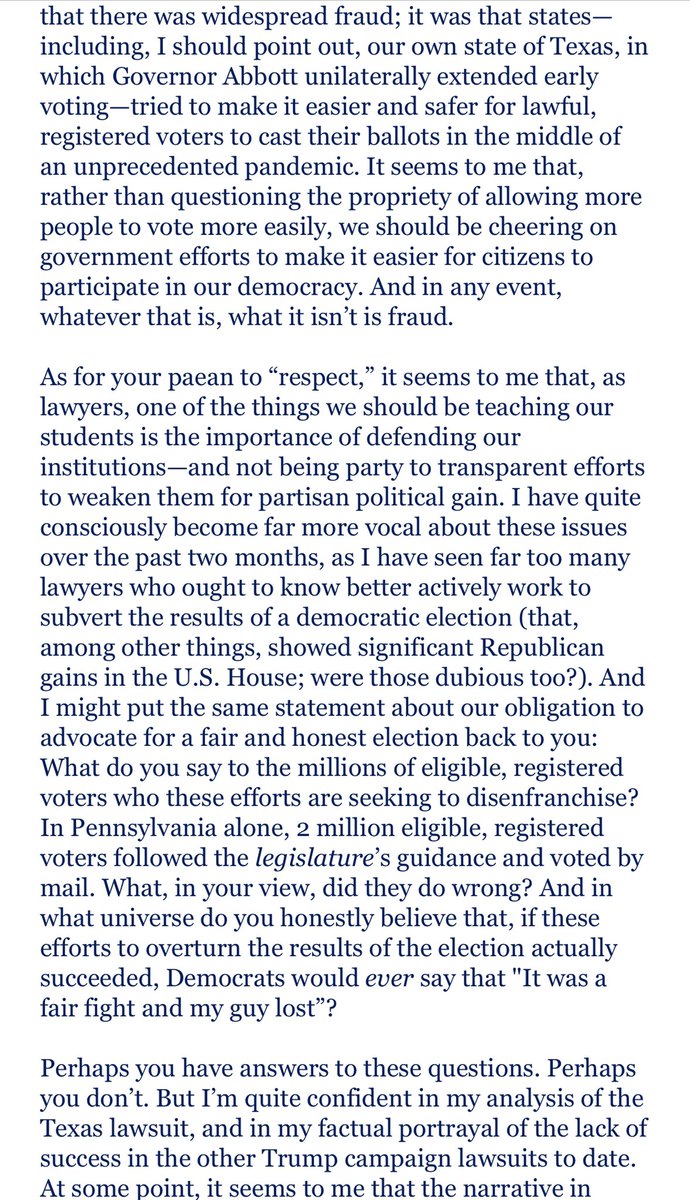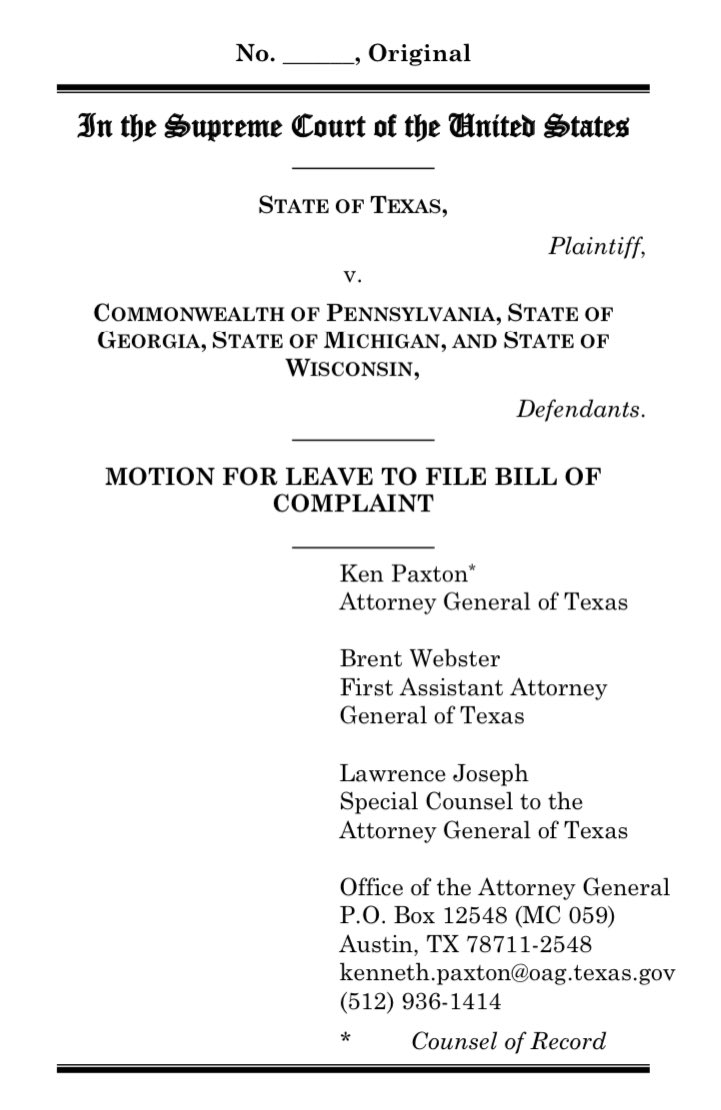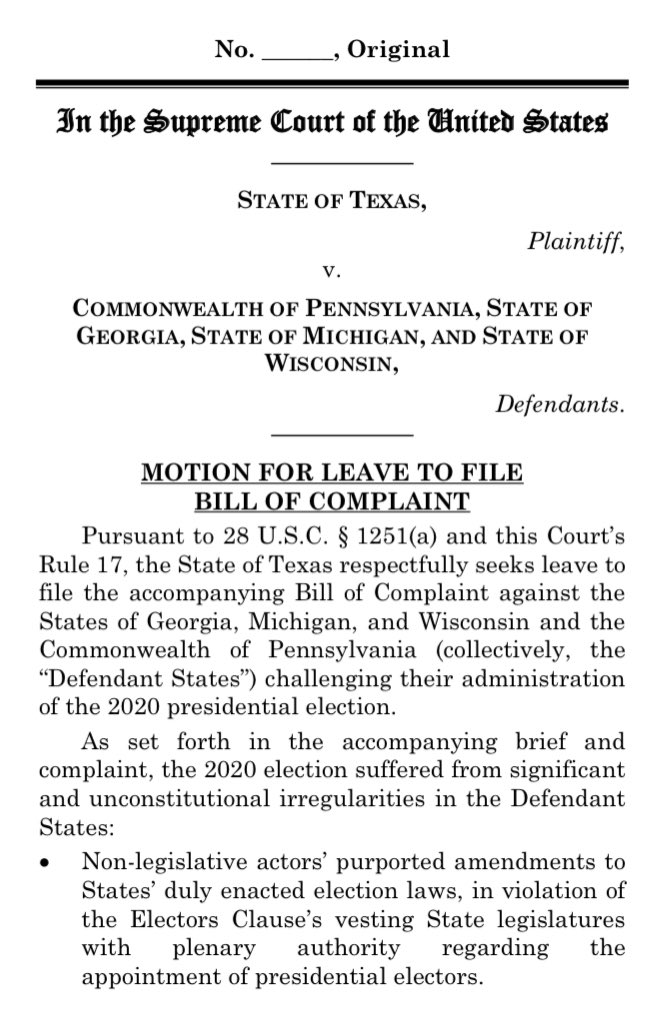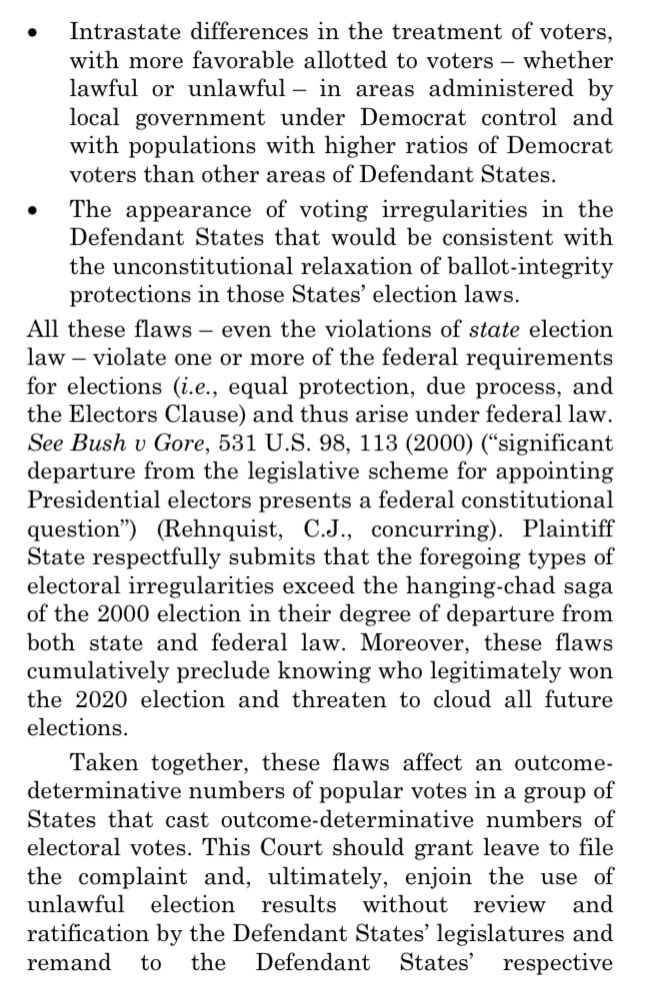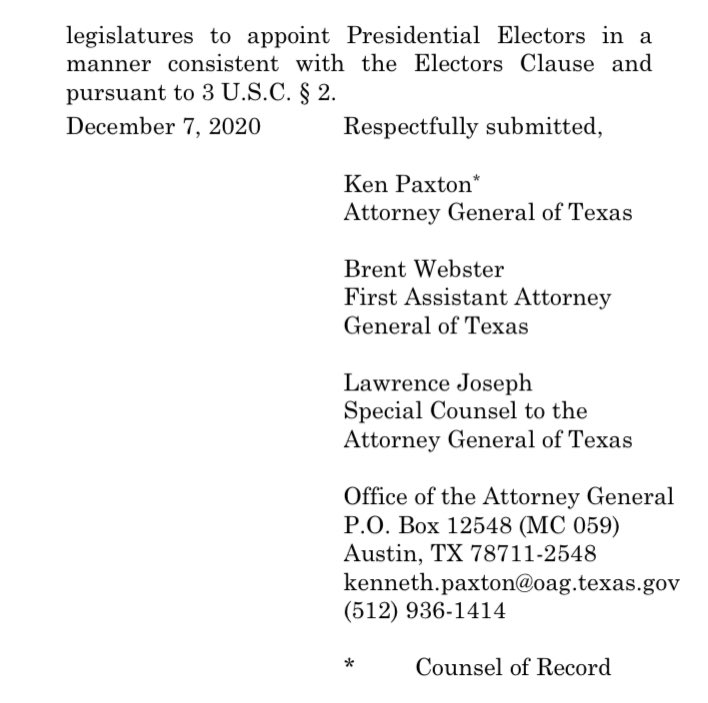
There's a new piece in @TheHillOpinion arguing that, if Republicans *slow down* the counting of electoral votes enough, they can generate a scenario in which Trump wins:
thehill.com/opinion/white-…
Here's a short #thread on why this scenario is not possible—let alone plausible:
thehill.com/opinion/white-…
Here's a short #thread on why this scenario is not possible—let alone plausible:
The claim rises and falls on the 12th Amendment. It provides that, if no presidential or vice-presidential candidate receives a majority of electoral votes, they're chosen by the House (one vote per state) and Senate (one vote per Senator), respectively:
law.cornell.edu/constitution/a…
law.cornell.edu/constitution/a…
With Republicans controlling a majority of state delegations in the new House, and perhaps a majority of the Senate as well (depending upon GA), the argument goes that, if they just stall long enough, they can choose Trump and Pence.
This argument just doesn't work. Here's why:
This argument just doesn't work. Here's why:
The 12th Amendment kicks in if no candidate has a majority *once the electoral votes are counted.* The stalling that this theory contemplates is *during* the counting.
Yes, stalling could drag things out, but it would also *prevent* Congress from certifying a lack of a majority.
Yes, stalling could drag things out, but it would also *prevent* Congress from certifying a lack of a majority.
And until and unless Congress *formally determines* that no candidate received a majority of electoral votes, the 12th Amendment process is entirely irrelevant.
As for what happens if the counting is still going on January 20, well, that's part of why it *won't* still be going:
As for what happens if the counting is still going on January 20, well, that's part of why it *won't* still be going:
If Congress isn't finished by noon on 1/20, then Speaker Pelosi would become the Acting President under the Presidential Succession Act of 1947.
The only way to get to the 12th Amendment process is for Congress to *disqualify* electors, not just stall. And that ain't happening.
The only way to get to the 12th Amendment process is for Congress to *disqualify* electors, not just stall. And that ain't happening.
• • •
Missing some Tweet in this thread? You can try to
force a refresh

